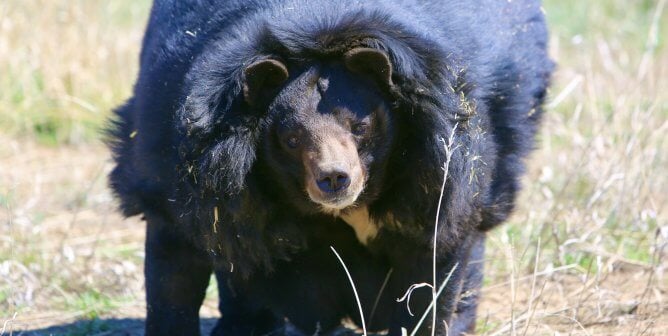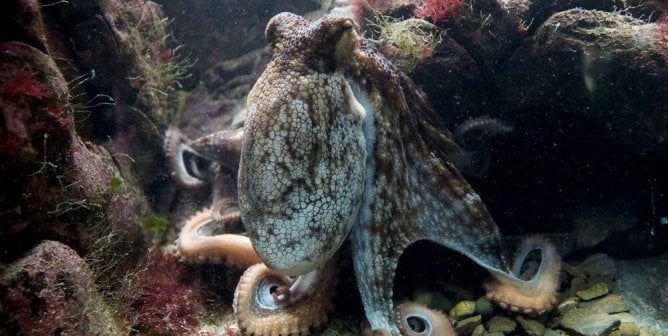Donkey Basketball Fundraisers: Disturbing and Inhumane
For those of you lucky enough to be unfamiliar with donkey basketball games—events that are often used as school fundraisers—let us introduce you to this ridiculous “sport”: Donkeys are hauled around the country in cramped, stuffy trailers and taken to schools, where they’re kicked, shoved, and shouted at while rowdy students, teachers, and others ride on their backs and play a game of basketball in front of screaming crowds.
It’s hard to believe that today, with all the creative fundraising opportunities available, something this absurd is still being held in schools—but it is. How could anyone not see that this is inhumane and demeaning to animals? Not to mention that it sets an awful example for young, impressionable students about how we should treat fellow living beings.
Perplexing as it may be, TeachKind hears about dozens and dozens of donkey basketball events taking place in schools across the U.S. every year. Many students, teachers, and members of the public contact PETA with concerns and reports about upcoming games and actively work with us to try to get them canceled.
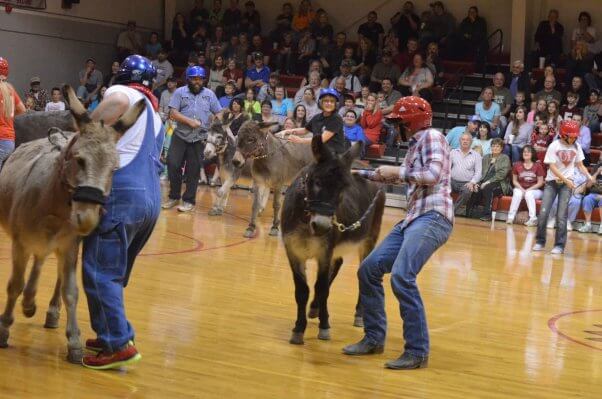
We know that every school needs to fundraise, but don’t let yours fall for this. Educators should know why donkey basketball has no place in a school—or anywhere else. Here’s everything that you need to know about these cruel events and why your school should avoid them:
- While donkeys used in donkey basketball events have some legal protections under the federal Animal Welfare Act, the U.S. Department of Agriculture is inconsistent in enforcing the law—a sad fact that exhibitors routinely take advantage of. A handful of companies rent out donkeys for these games as if they’re sports equipment, loading and unloading them in and out of cramped, stuffy trailers and hauling them around the country from one event to the next, inevitably denying them the space and exercise that they need in order to thrive.
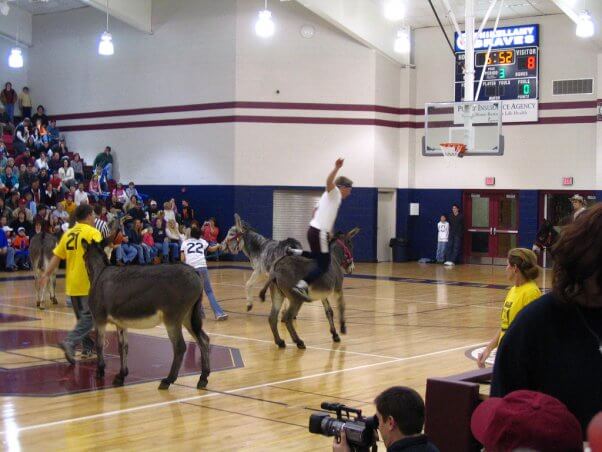
- Donkeys are patient, kind, intelligent animals. They can recognize the faces of animals they haven’t seen for years, and they feel pain and fear just as any other animal does. It’s not difficult to figure out that donkeys don’t enjoy these so-called “games,” which are surely terrifying and confusing for them. The lights, noise, and commotion of these events are extremely stressful for them.
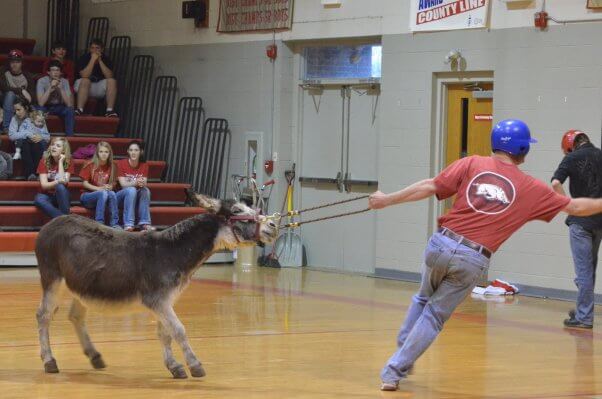
- In addition to the stress of being hauled around the country to loud events, these gentle animals also must endure the additional trauma of being kicked, shoved, and shouted at during the often-chaotic games. They’re forced to bear the weight of riders whom they can’t safely or comfortably carry. Donkeys can only safely carry up to 30 percent of their bodyweight. As the average donkey weighs about 350 pounds, they can only safely carry about 105 pounds—which is less than most full-grown adults or even growing teenagers weigh. Carrying heavy loads can lead to stress and pain in the animals’ backs.
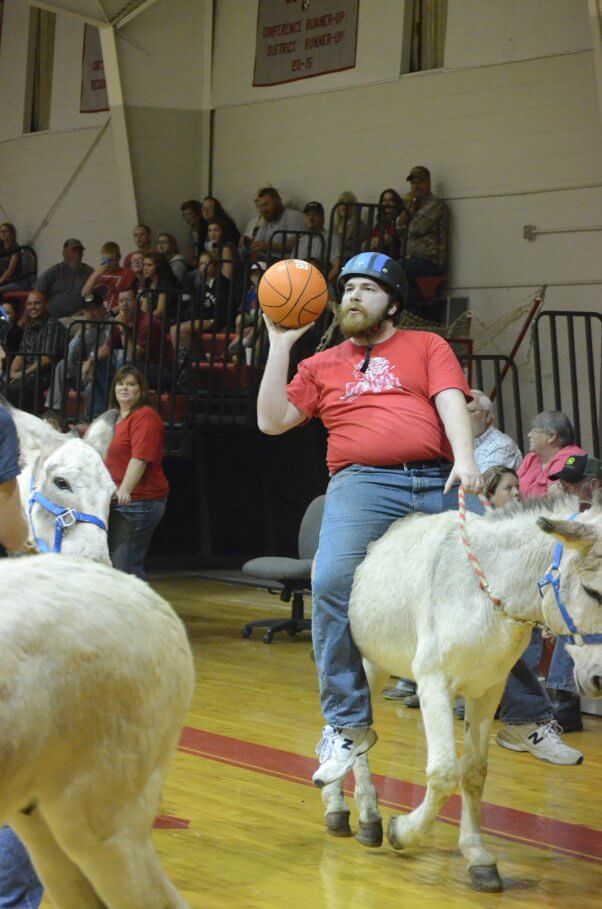
- You may notice donkeys resisting movement in some of these photos as players yank at or push them—but this isn’t because they’re being stubborn. Donkeys are naturally cautious animals, and they’re likely feeling fearful. If they’re highly stressed or frightened, their instinct isn’t to run away, as it is for some animals—instead, they sometimes lie down or plant their feet and refuse to move while they assess their surroundings.
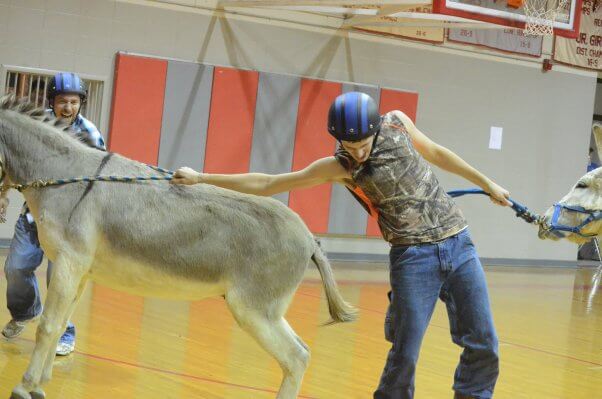
- Not surprisingly, donkeys who are regularly subjected to such stress often develop unpredictable temperaments and may lash out to protect themselves, which puts both riders and bystanders at risk. Players have fallen off of and been kicked by frightened animals and have broken legs, arms, and wrists—and some have even sustained concussions after being slammed to the floor. We suspect that many more incidents have gone unreported.
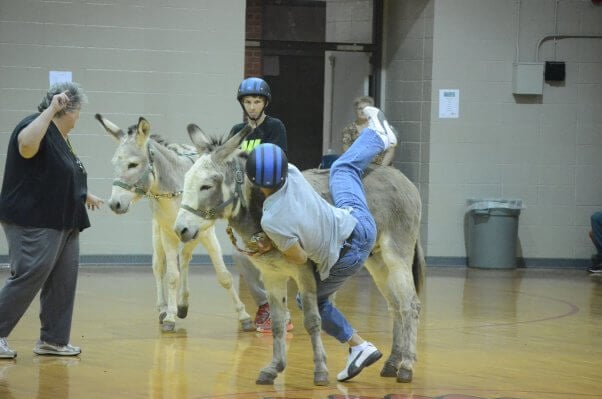
- There have been lawsuits, too: In Florida, a fifth-grade teacher sued the owner of the Dixie Donkey Ball company and the Diocese of St. Petersburg, claiming that she had been injured after being thrown off a donkey at a fundraiser. In Waterloo, Illinois, a litigant was awarded more than $110,000 in damages for injuries that he had sustained in a game. Some schools end up canceling donkey basketball events after they’ve been planned because of the risk of liability.
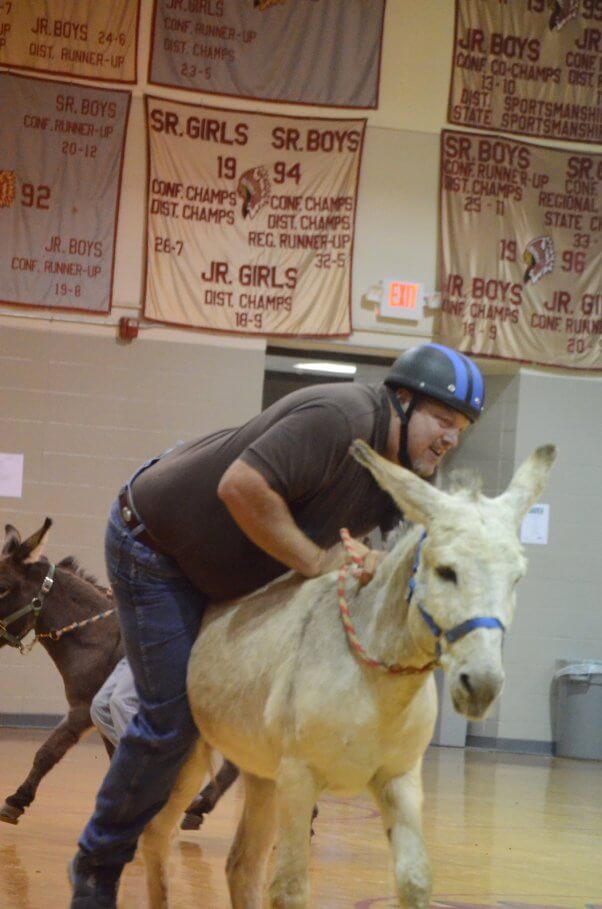
- Donkey basketball fundraisers desensitize young people to animal suffering and send kids the message that it’s OK to abuse and humiliate those who are weaker than they are. Children who are exposed to animal abuse are taught the dangerous lesson that cruelty is acceptable and that we have the right to exploit animals for our own entertainment—which can manifest in further animal abuse. Most kids have natural compassion for animals, but during games like these, students often end up (and are likely encouraged to be) more concerned with winning the game and showing off for their friends than with the animals’ well-being. Schools should be working to nurture compassion, empathy, and kindness in their students—not callousness and cruelty.
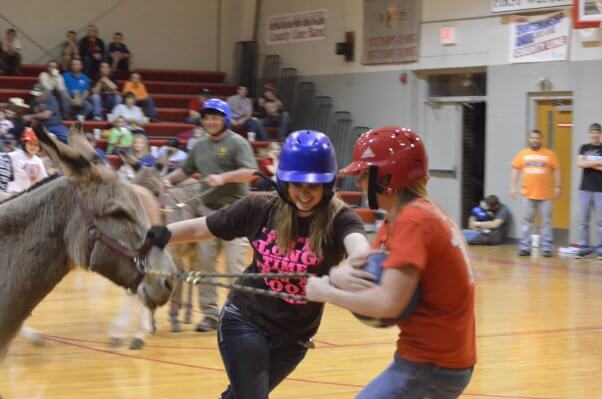
- Schools and school districts around the country have done the right thing by putting an end to these inane events. Many schools have canceled scheduled games, replaced their annual fundraisers with non-animal events, and pledged to be donkey basketball–free. Students and teachers alike have spoken out against these games, and PETA has contacted hundreds of school administrators with information about why donkey basketball is cruel. In one case, the principal of a high school near Chicago canceled its scheduled event after receiving information from PETA, saying, “I hope this teaches our students it’s never too late to go back and change and go in a different direction. I personally don’t think we need donkeys to build school spirit or raise money.” Some school districts have even implemented policies prohibiting the use of live animals in fundraisers altogether.
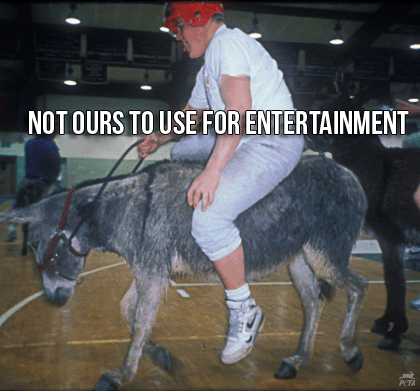
- There are countless fun, community-oriented fundraising ideas available to replace live-animal events. Schools have all sorts of options that can help them raise the money that they need while also setting a positive example and not exploiting animals—check out some of the many creative options here. In one example, Fleetwood Area School District in Pennsylvania replaced its annual donkey basketball games with dodgeball after hearing from concerned students, and the superintendent informed us that the school raised more money than it had previously with donkey basketball—and it has made dodgeball its official annual fundraiser.
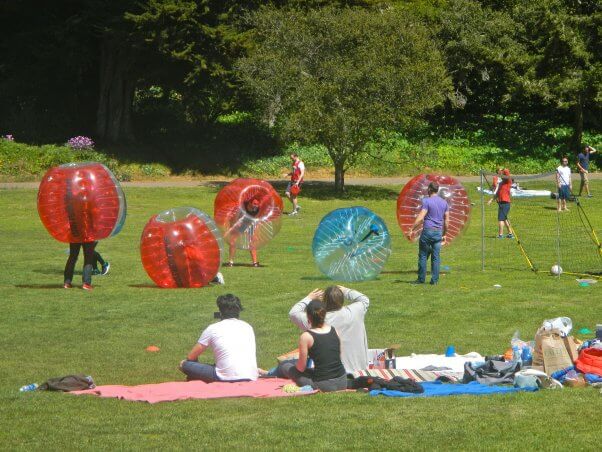
Here’s what to do if your school is planning or considering a donkey basketball game:
- Speak up. Learn the facts about why donkey basketball is cruel and speak with or write a letter to your principal, your superintendent, and/or your school’s PTA. Be sure to prepare and include suggestions for humane fundraising options that your school can plan instead.
- Gather support. After sharing information about the cruelty inherent in donkey basketball games with students and fellow staff, gather signatures on a petition to replace the game with a fun animal-free fundraiser.
- Involve the community. You could even write a letter to the editor of your local newspaper to let members of the community know why this event is wrong. Many people will be outraged to find out that an exploitative event like this is taking place in their community, so gather their support.
- Still need help? Contact TeachKind to report any upcoming games. We want to support you in making sure that your school plans kind fundraisers, and we can contact its administration with more information.


